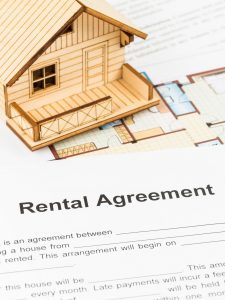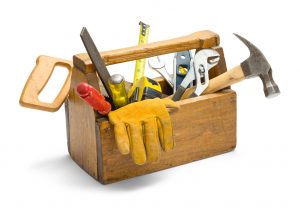Thinking about becoming a landlord? At Carr Paralegal we frequently meet landlords who jumped in with both feet without knowing a lot about the legal obligations that come with being a landlord. Here are 15 things to keep in mind when considering becoming a landlord.
- Before deciding to become a landlord, know the Rights and Responsibilities that come with the job. Because this is a job not simply a passive income generator. Know what you can do vs. what you can’t. It’s also essential to understand the tenants’ rights and responsibilities to understand how they can affect you. This makes it clear what each party is responsible for and you can build a solid relationship with your tenants.
- Speaking of rules and regulations, did you know that an annual lease automatically converts to a monthly lease at the end of the term? A tenant is not required to sign a new yearly lease and the landlord can only apply to end the tenancy for reasons specified in the Residential Tenancies Act (the fact that an annual lease has reached
 the end of its term is not one of those reasons).
the end of its term is not one of those reasons).
- Having a detailed rental agreement will benefit both the landlord and the tenants. This sets out what is expected of both parties. The most obvious expectation is rent: how much will be paid, when, and how. It can also specify what appliances and services are provided by the landlord and which are not. In Ontario, new leases must be drafted using the Ontario Standard Lease, however there is still the option to add specific clauses to manage your rental the way you want it to be managed. Optional clauses can include whether or not smoking is permitted in the unit or what changes to decorating or landscaping are permitted without permission.
 4. Agreements about who is responsible for snow removal or other exterior maintenance must be documented in a separate contract. They cannot form part of the lease.
4. Agreements about who is responsible for snow removal or other exterior maintenance must be documented in a separate contract. They cannot form part of the lease.
- Screening potential tenants helps to reduce the chances of future problems or damage to your property. This can be done by the use of references, employers, previous landlords etc. Remember that you must have a tenant’s permission before conducting a credit check, and you must comply with the Ontario Human Rights Code when asking questions and selecting tenants.
- If you aren’t sure about what can be put in a lease or what criteria you can use to find your ideal tenant, it is worth getting legal advice to avoid future problems.
- Getting to know your tenants will benefit both you and the tenants. This can allow for open communication, honesty and being able to trust one another.
- Make sure your tenants have a way to contact you or a property manager quickly in an emergency. This could be through your personal cell phone or another means of communication. It is reasonable to have some privacy from your tenants but remember that there can be serious repercussions if a tenant cannot reach their landlord in an emergency.
- Regular inspections allow you to see if anything needs to be repaired or replaced and anticipate future repairs. This also lets you see if the tenants are breaching any terms of the lease or damaging the property. Early detection of problems is important to minimize damages.
- Living close to the property gives easy access for inspections and emergencies. Just driving by the property can reassure you that things are still in good order.
- Alternatively, if you do not live close to the property consider hiring of a property manager to keep an eye on the property for you. If you choose to hire someone, make sure that the duties of each party are explicitly known by all so there are no miscommunications. A property manager can be the first line of communication for your tenants. They can arrange maintenance professionals to come into the house, complete regular inspections on the property, and pick up rent checks. Be aware that you are responsible for the conduct of the people who act on your behalf. If they make inappropriate comments or neglect their duties, you as the landlord can be held accountable.

- If handy work isn’t something you excel at, consider building relationships with maintenance professionals. This will allow you to know that someone trustworthy is taking care of your property for you. Make sure that you understand the maintenance obligations of a landlord. Many landlords include a clause in their lease that repairs under a certain dollar amount are the tenant’s responsibility. However such clauses are not legally enforceable. Understanding your maintenance obligations allows you to budget for repairs so they don’t create financial difficulty when they inevitably arise.
- Look into your insurance coverage. Talk to your insurance broker to ensure you have the right insurance to protect your property from unexpected damage. Did you know there is even insurance that covers unpaid rent? Although not a requirement, it is a good idea to suggest that tenants purchase tenant insurance. In case of an emergency like fire or flood, this ensures that the tenant’s personal property is covered.
- Buying an existing rental unit may seem like an easy way to enter the market. However, be aware that when you purchase a tenanted property, you inherit the existing tenants and all existing lease terms. This may mean that long term tenants are paying below market rent. In this common scenario you cannot increase the rent by more than the annual guideline amount. The existing lease may have conditions which you do not like, such as the inclusion of utilities or full access to the outside areas in a duplex which you are sharing. On the other hand, you may inherit fantastic long-term tenants who will provide a continuous revenue stream starting the day you buy the property.
- If problems arise and you want to evict a tenant or your situation changes and you need or want a tenant to vacate a unit temporarily or permanently, review your legal obligations carefully before proceeding. The Landlord and Tenant Board provides forms for all legal eviction options as well as instructions on how to complete them. Many people who haven’t completed these forms before make mistakes that mean the forms are invalid at a hearing. This delays the process by several months and can undermine your chances of success by raising questions about your motivations.
If you have any questions, consulting with a legal professional is always a good investment to protect your investment.
With proper due diligence becoming a landlord can be a financially rewarding investment. However, landlords who jump in without a full understanding of the rules and regulations frequently become frustrated and disappointed.
Now that you have some useful tips you can consider if being a landlord is right for you.
If you are a landlord, new or old, and have questions about your legal rights or obligations Carr Paralegal is always happy to help!
